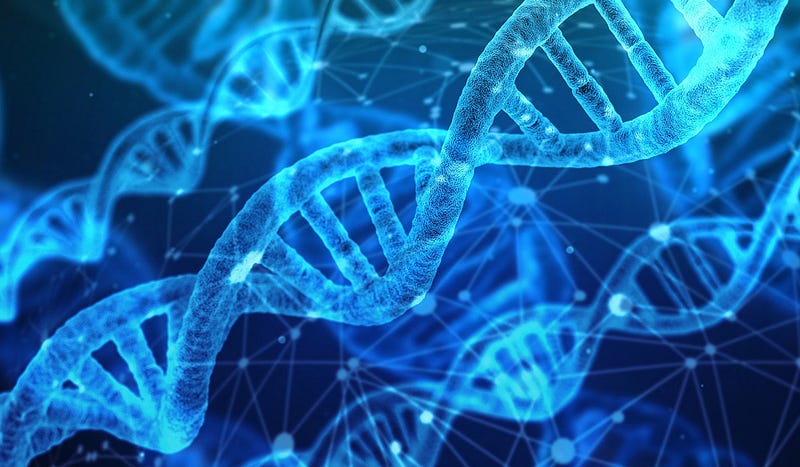Exploring the Possibility of Defeating Mortality
Written on
Chapter 1: The Allure of Immortality
The pursuit of eternal life has fascinated humans for ages, appearing in countless myths, tales, and scientific explorations. While actual immortality is still out of reach, remarkable progress in fields like medicine, technology, and biology has brought us closer to potentially lengthening our lifespan and fighting the effects of aging. But are we nearing a breakthrough that could allow us to genuinely "defy death"?

Section 1.1: Cellular and Molecular Strategies
Telomere Lengthening: Telomeres, the protective end caps of chromosomes, diminish with each cell division, correlating with aging and cell demise. Research indicates that lengthening telomeres may rejuvenate aging cells, potentially prolonging lifespan. Techniques such as telomerase activation, which extends telomeres, are currently being researched as viable anti-aging methods.
Senolytic Drugs: As we grow older, our bodies accumulate senescent cells that cease to divide yet do not die, contributing to inflammation and tissue deterioration. Senolytic drugs are engineered to selectively eliminate these senescent cells, thereby reducing inflammation and possibly extending a healthy lifespan. Initial studies in animals have shown encouraging outcomes, with human trials now beginning.
Stem Cell Treatments: Stem cells possess the extraordinary capability to differentiate into various cell types and heal damaged tissues. By introducing youthful stem cells into the body, scientists aim to counteract aging and degenerative conditions. Innovations in induced pluripotent stem cells (iPSCs) technology, which reprogram adult cells to act like stem cells, present exciting prospects for regenerative medicine.
Section 1.2: Genetic and Epigenetic Advancements
Gene Editing with CRISPR: The CRISPR-Cas9 technology allows for precise modifications of genes, potentially providing cures for genetic disorders and enhancing lifespan. By focusing on genes linked to aging and related ailments, researchers hope to decelerate or even reverse the aging process.
Epigenetic Resetting: Our genes are influenced by epigenetic markers that can vary with age and environmental factors. Epigenetic reprogramming seeks to revert these markers to a youthful state. Studies in mice have demonstrated that partial reprogramming can restore youthful functionality to cells and tissues, hinting at a possible method for reversing aging.
Chapter 2: Lifestyle and Nutritional Strategies
Caloric Restriction: Studies have shown that decreasing calorie intake without malnutrition can extend lifespan across various species, from yeast to mammals. This practice lowers metabolic rates and oxidative stress, both linked to aging. Although long-term caloric restriction in humans presents challenges, understanding its mechanisms could lead to dietary strategies that replicate its benefits.
Nutraceuticals and Dietary Supplements: Compounds such as resveratrol (found in red wine), NAD+ enhancers, and metformin (a diabetes medication) have gained attention for their potential anti-aging effects. These substances target cellular processes related to aging, including mitochondrial function and oxidative stress. While further research is warranted, some studies indicate they may enhance healthspan and longevity.
The first video, Science and the Strange Quest to Cheat Death, delves into the fascinating exploration of how scientific advancements are attempting to tackle the aging process and extend human life.
Chapter 3: Technological Innovations
Artificial Intelligence and Big Data: The integration of AI and big data is transforming our comprehension of aging. By processing extensive genetic, epigenetic, and health-related information, AI can uncover new aging biomarkers and forecast individual aging patterns. This personalized strategy allows for targeted interventions designed around a person's unique biological makeup.
Cryonics: Although not a direct answer to aging, cryonics involves preserving the body at extremely low temperatures post-mortem with the hope that future advancements will facilitate revival and healing. While this approach is controversial and speculative, it embodies the ultimate gamble on future scientific breakthroughs.
The second video, Cheating Death | Radiolab Podcasts, offers insights into the philosophical and ethical dilemmas surrounding the quest for extended life and the implications of new technologies.
Ethical and Philosophical Reflections
The prospect of extending human life raises significant ethical and philosophical dilemmas. Who will benefit from these technologies? What will be their societal impact, and how will they reshape our understanding of life and death? As we approach the possibility of genuinely defying death, it is crucial to address these questions to ensure the equitable and responsible application of anti-aging technologies.
While true immortality may remain a distant vision, the intersection of groundbreaking science and technology is bringing us closer to significantly prolonging human life and enhancing health as we age. From cellular therapies and genetic modifications to dietary approaches and AI, the endeavor to outsmart death is advancing at an extraordinary pace.
However, this journey is laden with ethical quandaries and scientific uncertainties. As we traverse this new frontier, it is vital to balance hope with caution, ensuring that the quest for longevity serves the interests of all humanity.